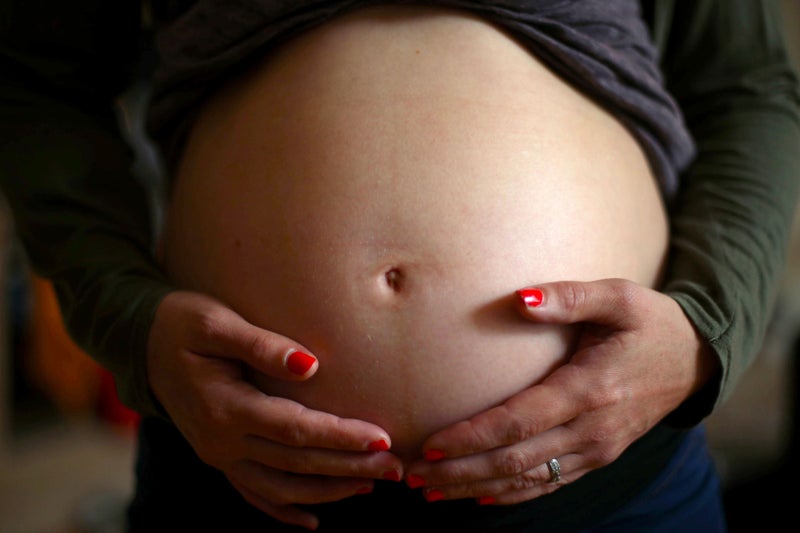The practice can be fraught with risks, Neera Bhatia, Catherine Mills, Giselle Newton, Karin Hammarberg and Molly Johnston write. People looking for a sperm donor can go to a fertility clinic, ask a friend to donate or look for a donor online, including on an app or via social media. Women in same-sex relationships, single women and others are choosing the online option for a number of reasons. But this brings with it various challenges and risks. Here’s what to know first.
![[Robert Charles Albon, who advertises himself online under the name ‘Joe Donor’, claims to have fathered more than 180 children]](https://static.independent.co.uk/2025/02/12/15/Thumbs.jpg)
Up to 4,000 children are estimated to have been born over the past ten years via one Australian sperm donation website alone. In just 2022, sperm sourced via one private Facebook group reportedly resulted in 692 births. Some donors and recipients choose to use online platforms because they want to form connections and friendships with the other party early on. In some cases, donors choose to remain in the lives of the recipient and any child born from their donation.
![[Unscreened sperm may carry inheritable genetic conditions]](https://static.independent.co.uk/2024/10/11/11/iStock-175209419.jpg)
But some sperm donors go online to remain anonymous, an option not usually possible when donating through a fertility clinic. Some people might use online sperm donation because the cost of accessing donor sperm at fertility clinics is too high in Australia. Some clinics charge a sperm donation management fee of about A$2,000. This allows people to access information about the donors they can choose from. Then there is the cost of insemination and of the sperm itself, which is about $2,500 out-of-pocket per cycle. Online sperm donation in Australia tends to be altruistic and does not cost anything.
![[Those looking for donor sperm should consider how the arrangement will impact their child]](https://static.independent.co.uk/2025/01/24/11/newFile.jpg)
People in rural or regional areas may live far from fertility clinics, making access challenging. Then there’s often a shortage of donor sperm at clinics. In particular, there’s a lack of ethnic and cultural diversity in donors. Whatever the reason for seeking sperm online, here are some issues to consider first. Sperm donors at fertility clinics undergo medical, physical and psychological screening to reduce the risk of transmitting disease to a child.
However, online sperm donors may provide people with unscreened sperm that might be carrying sexually transmitted infections or inheritable genetic conditions. This puts the recipient and the potential child at risk because of the lack of medical information about the donor. People might be placed at risk when they agree to meet a potential online sperm donor in person. There have been reported cases where potential donors have pressured people into natural insemination (sexual intercourse) once they meet. This is despite donors initially agreeing to provide sperm for home insemination (using a syringe to inject the donor sperm into the vagina).
These safety and exploitation concerns are especially pertinent in cases of same-sex female couples and people who are same-sex attracted who might feel coerced or compelled to have sexual intercourse with a man to try to conceive a child. In fertility clinics, state laws limit the number of individuals or families that can use a single donor’s sperm (from five to 10 families depending on the state).
The nature of online sperm donation means there are no records kept about the number of children a donor contributes to conceiving. With no formal record keeping, one donor could potentially provide sperm to hundreds of people. This increases the chances of donor-conceived siblings unknowingly having children together later in life. There might be cases where donors do not tell the truth about their identity or background, as happened in a case in Japan when a donor allegedly lied about his identity and education.
There might also be psychological harm when an agreement has been made about contact between the parties and that agreement is later disputed or disregarded. A man who donates sperm to a fertility clinic has no legal rights or obligations to a child born as a result of this donation in Australia. However, conceiving a child using informally donated sperm can be legally precarious. We are not aware of any reported cases in Australia of legal disputes about parentage that have involved online sperm donation. However, if the practice continues to grow, the courts may need to intervene if a donor is seeking to exercise some rights relating to the donor-conceived child against the mother’s wishes.
There was, however, a 2019 case that relates to sperm donation by a friend. Here, the High Court ruled a man who donated sperm informally to his friend was deemed the legal parent of a child. This resulted in the mother and her same-sex partner being prevented from relocating to New Zealand with the child and their sibling. As each potential case will depend on its own set of unique circumstances, it’s best to take legal advice first.































